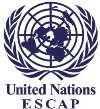ID :
276339
Wed, 02/27/2013 - 10:09
Auther :
Shortlink :
https://oananews.org/index.php//node/276339
The shortlink copeid
UNESCAP: Make Voices Heard Of 1.5b People In Fragile, Conflict-affected Areas

Tehran, Feb 27, IRNA - As the 2015 deadline for achieving the Millennium Development Goals (MDGs) approaches, more than 1.5 billion people still live in fragile and conflict-affected countries.
Their voices, priorities, challenges and solutions must inform the post-2015 development agenda, more than 400 participants at the Dili International Development for All Conference heard today.
Hosted by the Government of Timor-Leste, with the support of the United Nations Economic and Social Commission for Asia and the Pacific (ESCAP), the President of Kiribati, the Prime Minister of the Solomon Islands, and the Chairperson of the G77, joined senior ministers, and representatives from more than 45 countries, for the three-day consultation. The conference is part of the global processes shaping the development framework to succeed the MDGs. Timor-Leste currently chairs the g7+ group of 18 fragile and conflict-affected countries.
In his video message to the conference, affirming the support of the United Nations through ESCAP, the UN Secretary-General, Ban Ki-moon, stressed that the transformation of violent conflict and fragility into peace, justice and shared prosperity must be central to the deliberations on post-2015 development.
“Fragility and insecurity are the major development challenges of our time,” said Dr Noeleen Heyzer, UN Under-Secretary-General and ESCAP Executive Secretary, speaking at the opening ceremony in the Timorese capital. “Few people are more qualified to inform the review of the MDGs than the 1.5 billion who have benefitted least from them – in our fragile economies and small island developing states. The real power of the MDGs lay in their promise of a better world – but it has been a promise not kept by everybody, and not felt by all, especially those who remain in persistent poverty in areas of fragility, conflict, and isolation.”
The world has made much progress in reducing poverty – especially in Asia – but areas subject to repeated cycles of violence, natural disasters and changing weather patterns, are still being neglected. “The costs of not fully meeting the MDGs have been high,” said Heyzer. “Economic growth in these areas has stagnated, and human development has been compromised.”
The 2011 World Development Report highlighted the fact that people living in communities plagued by violence are still twice as likely to be undernourished, 1.5 times as likely to be poor, and their children are three times as likely to be out of school. More than 42 million people have been displaced, while citizens in low income fragile and conflict-affected countries still receive, on average, less than half of government spending in other countries on education, health and security.
Identifying keys to breaking the cycle of fragility, Under-Secretary-General Heyzer underlined the importance of citizen security; the strengthening of institutions; good democratic governance; accountable management of resources; and regional & global partnerships. In her address, Dr Heyzer also called for a realignment of international development systems and renewed international engagement, regional commitment and determined national leadership.
“We want a future fit for all – one which is inclusive, sustainable and resilient. We want a future where people, planet and prosperity are placed at the center of our development efforts,” Dr. Heyzer concluded.
The outcomes of this consultation will feed into the UN High-level Panel report to the UN secretary general on the global development agenda beyond 2015./end





